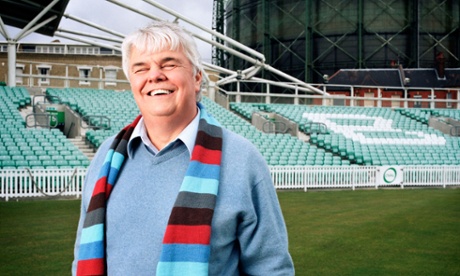
Robert Louis Stevenson was spot on when he wrote: “To travel hopefully is a better thing than to arrive.” So many of life’s pleasures are rooted in anticipation. I reckon I may have a particularly severe case of this.
Aged five, I went away to a boarding school for blind children that made Dickens’s Dotheboys Hall look insipid. It meant that for six formative years I spent my life counting days: those to the end of term and a return home, and, inevitably, those eking away the end of a holiday. But this piece is about happiness, so let’s concentrate on the end of term. Nothing since has smelled sweeter to me than the tang of my own clothes (private clothes, they were known as in the jargon of the school), taken from us within an hour of entering the school gates at the beginning of term, and only returned to us at the last possible moment to replace the dreadful uniform we were required to wear for 13 tortured weeks.
I know now the unfamiliar smell was only mothballs, but at the time it made my heart leap, as did all the other signposts of freedom on the way home: the announcements of the stations on the route from Bristol to Winchester – Bath, Bradford-on-Avon, Westbury, Salisbury, Romsey (nearly there); the feeling of a much-missed dog’s head butting me in the stomach as I went through the front door; the first game of holiday cricket on our postage stamp of a back lawn. They all marked the start of what I struggled to believe would be the endless days of summer.
So what makes me happy now, rather than then? I don’t want to wallow in nostalgia, but it is inevitably connected with that experience, because I realise I love the beginnings of the things I treasure: books, sport, music, time spent at home with my family. The times before they’ve been spoilt by outcomes.
Take books. Nothing makes me happier than the beginning of a new book. I don’t mean the startling opening sentence or the first body in the library; I mean the really boring bits, especially at the start of works of non-fiction, which everyone else skips. I love the long lists of unknown names you’ll never see again, but without whom the author assures us this book could never have been written. I’m irresistibly intrigued when particular thanks are due to Ingrid somebody-or-other, an obscure archivist in Heidelberg who, we’re told, was particularly attentive and left no stone unturned. I wonder if she and the rather stuffy biographer I’m planning to spend 800 pages with had a bit of a thing going, made all the more poignant by the thanks for the patience and loyalty of his wife (presumably stuck at home with the kids while he was off for months on end with Ingrid in the bookstore).
I even love the lists of photographs and plates, realising that their descriptions are giving me a brief insight into a book I will probably never finish. It doesn’t matter if I never get beyond page 10; I’ve still had the pleasure of anticipating this big fat book in my own peculiar way.
It’s the same with sport. I don’t think I’m ever happier than during the opening over of a Test match: everything is still possible, before the inevitable England batting collapse, the predictable controversy over ball-tampering, or the oh-so-gradual and frustrating approach of rain.
I revel in the sounds and smells as I make my way towards a football match involving my beloved Southampton: the crunch of feet on discarded burger boxes, the click-click-click of a turnstile, the intoning of barbaric tribal songs that would be allowed nowhere else in our sanitised society. I enjoy the game, but that’s not the same as being happy. Too much tension, too much fear of failure, too much anti-climax when you’ve won as you begin to worry about the next match. Much better the moments before, when all is in the future.
It’s why people love the opening chords of favourite songs, before the composer has run out of ideas and repeated the middle eight three times, or resorted to a slow, 30-second fade because they couldn’t come up with an ending. And it’s why those Saturday mornings at the start of a long weekend are still so delicious. It’s that moment when you still believe that two days, with absolutely nothing you have to do, are the key to perfect happiness. They’re not, of course, as you will have remembered by early Saturday evening, but that moment when you thought they were is still one of exquisite pleasure.
There is, of course, one thing I enjoy ending, and that is a piece of work you think has genuinely summed up exactly what it was you wanted to say. It’s a heady feeling. Treasure it. It will be succeeded, as night follows day, by the question: what will the editor want me to change?
Peter White is the BBC’s disability affairs correspondent

